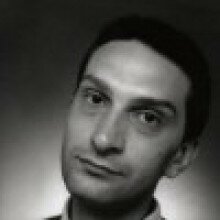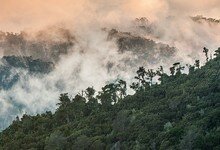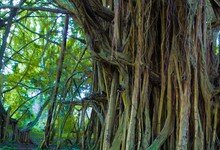
Aleksandr Leontjev was born in what is now Sint Petersburg, moved to Volgograd, the former Stalingrad, when he was five. He trained for the stage and worked as an author and director in a mining town in Siberia. He later worked as a night watchman, a janitor, a courier for a publishing company, a rural postman, a librarian and a poetry teacher.
He is currently unemployed and has moved back to Volgograd.
Leontiev made his début at age thirteen, publishing two stories in a regional magazine with the huge circulation that was commonplace under Soviet communism. He says it was work he'd rather forget about. In 1992 he sent some poems to Joseph Brodsky, who encouraged him. His first poetry publication appeared in 1993 in Zvesda (The Star), one of Russia's leading literary periodicals, and he has since published in other periodicals, such as Novy mir (The New World), Oktyabr (October) and Urbi. Also in 1993, Leontiev's first book of poetry, The Seasons, saw the light, followed in 1996 by Cicade, acclaimed as 'the greatest poetry event of the year'. In 1998 Garden of Butterflies appeared, followed by Insight in 1999. Each of these volumes contains about a hundred poems.
Leontiev writes poetry which anwers to the classic tradition in both prosody and themes. Nearly all his poems follow classical metre and rhyme schemes, which he applies in every possible variation. The poet is in a constant dialogue with colleagues; many of his poems seem to have been born from confrontation with the work of other writers. The world, in the sense of 'universe', and the presence or absence of a purpose in life are recurring themes; it is the poet's word which creates some kind of order out of chaos. Despite its concern with the great questions of life, his work is neither stilted nor abstract, because nearly all his poems are set against the very real and often all too prosaic background of the poet's own life.
[Alexandr Leontiev took part in the Poetry International Festival Rotterdam 1999. This text was written on that occasion.]







